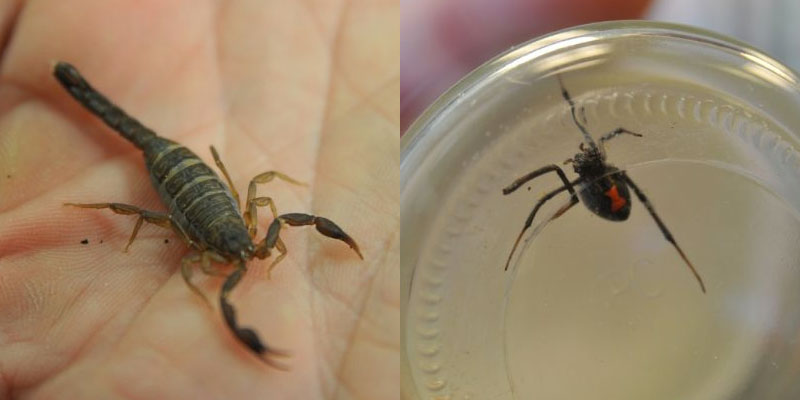Alabama is one of the most biodiverse states in the nation, and bugs play a tremendous part in the circle of life here.
That’s according to Dr. John Abbott, chief curator and director of museum research and collections for the University of Alabama Museums.
Abbott said most of Alabama’s more than 20,000 arthropod species – invertebrates with segmented bodies and jointed limbs such as insects and spiders – don’t cause problems for people. But some can, and summer is the most likely time for humans and arthropods to clash.
“The big arthropods to be concerned with are ticks and mosquitoes,” Abbott said. “Those can be problematic because they can vector diseases. I always like to remind people that it’s not actually the tick or mosquito that’s causing you the problem, it’s the pathogens they’re carrying.”
Abbott said the primary disease to be concerned about with mosquito bites in Alabama is West Nile virus. With ticks in the state, it’s Lyme disease and Rocky Mountain spotted fever.
“Someone actually brought in a black widow spider the other day that they captured from a house,” Abbott said. “They’re super common.”
Abbott said people view spiders negatively, but they’re actually a boon because they curb pest insect populations. Still, people must be careful around them, especially black widows, brown widows and brown recluses, the state’s most dangerous arachnids.
“They have completely different types of toxins. Black widows have a neurotoxin and can stop you from breathing. The smaller you are, the worse it will be.
“Brown recluses have a hemotoxin, which stops blood flow in infected areas and causes necrosis.”
Abbott said black widow spider bites cause a lot of pain, and seeking immediate hospital attention is highly recommended.
Brown widows, which look like black widows but for their brown or gray coloring, have a similar venom to that of their more dangerous black cousins, but it’s less toxic.
“It’s rare to be bitten by these spiders even though they’re very common, especially in the summer months,” he said. “People aren’t going to encounter them in any regular way. Something can be common, but that doesn’t mean you’ll commonly encounter them.
“Brown recluses are reclusive; it’s in their name. They are in dwellings but in parts not commonly accessed, like attics. Black widows also tend to be in tucked-away places like crevices, so most people aren’t going to casually run into them.”
Other arthropods to watch out for in Alabama are the Southern devil scorpion, centipedes, fire ants, yellow jackets and red paper wasps.
“The Southern devil scorpion here isn’t any more dangerous than getting stung by a bee,” Abbott said. “With the centipede it’s the same. It’ll hurt, but it’s not anything most people will have to go to the hospital for.”
Though painful, stings from the wasp, bee, yellow jacket and fire ant also don’t require a hospital trip — unless the person stung is allergic. Red paper wasps and yellow jackets can be aggressive, and can sting multiple times, unlike bees, which die after they sting.
“It’s good to take precautions when heading outdoors,” Abbott said. “Wear long pants, and spray the bottom of your pants with DEET or some other insecticide. That will go a long way in keeping things off because they oftentimes gather at your ankles and feet and crawl up.”
To avoid fire ant mounds, walk carefully. Stay away from secluded areas and crevices in the house, and put sulfur powder around ankles (it stinks and repels insects). If ticks are discovered on clothing or skin and they haven’t embedded themselves, remove them using a lint roller or duct tape.
This story originally appeared on the University of Alabama’s website.
(Courtesy of Alabama NewsCenter)













